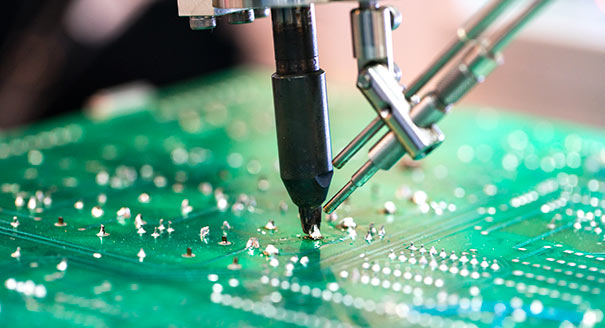In modern manufacturing, Industry 4.0 has emerged as a revolutionary force, ushering in a new era of connectivity, automation, and data-driven decision-making. This paradigm shift is not just a technological evolution but a comprehensive transformation that encompasses various aspects of the manufacturing process.
In this article, we delve into the core principles and practices of Industry 4.0 and their profound impact on the manufacturing sector.
Understanding Industry 4.0
Industry 4.0, often referred to as the fourth industrial revolution, represents the integration of digital technologies into manufacturing processes to create a smart and interconnected environment.
At its core, it involves the use of technologies such as the Internet of Things (IoT), artificial intelligence (AI), big data analytics, and advanced robotics to enhance efficiency, productivity, and agility in manufacturing.
The Key Pillars Of Industry 4.0 Practices:
1. Interconnectivity:
Industry 4.0 envisions a seamless network of interconnected devices, machines, and systems. This interconnectivity enables real-time communication, data exchange, and collaboration between different elements of the manufacturing process.
Through the use of IoT sensors and smart devices, manufacturers gain unprecedented visibility into their operations.
2. Information Transparency:
Transparency is a cornerstone of Industry 4.0. By leveraging data generated at every stage of production, manufacturers can make informed decisions and optimize their processes. Real-time access to data allows for predictive maintenance, reducing downtime and enhancing overall equipment effectiveness (OEE).
3. Technical Assistance:
Advanced technologies, such as augmented reality (AR) and virtual reality (VR), play a vital role in providing technical assistance on the shop floor. Workers can access information, receive guidance, and troubleshoot issues in real time, improving both efficiency and the quality of work.
4. Decentralized Decision-Making:
Industry 4.0 shifts decision-making from a centralized to a decentralized model. Smart systems and algorithms empower machines to make autonomous decisions based on real-time data, reducing the need for human intervention in routine processes. This not only accelerates decision-making but also minimizes the risk of errors.
The Impact On Manufacturing Processes:
1. Smart Factories:
Industry 4.0 transforms traditional manufacturing facilities into smart factories. These factories leverage connected technologies to create a highly flexible and adaptable production environment. Machines communicate with each other, optimizing workflows and responding dynamically to changes in demand or production parameters.
2. Predictive Maintenance:
One of the tangible benefits of Industry 4.0 is predictive maintenance. By continuously monitoring equipment health through sensors and analytics, manufacturers can anticipate potential issues and schedule maintenance proactively. This not only reduces downtime but also extends the lifespan of machinery.
3. Customization And Flexibility:
The ability to collect and analyze vast amounts of data enables manufacturers to tailor products to specific customer needs. Industry 4.0 practices facilitate mass customization, allowing for the efficient production of personalized goods without compromising on efficiency or cost-effectiveness.
Challenges And Considerations:
While the promises of Industry 4.0 are vast, implementation comes with its set of challenges. Security concerns, interoperability issues, and the need for a skilled workforce are some of the hurdles that manufacturers must navigate.
Additionally, the upfront costs of adopting new technologies can be substantial, requiring a strategic approach and long-term vision.
Manufacturing The Modern World
Industry 4.0 practices in manufacturing represent a paradigm shift that goes beyond the adoption of individual technologies. It is a holistic transformation that redefines how products are made, from design to production and beyond.
As manufacturers embrace the fourth industrial revolution, the integration of smart technologies is poised to drive unprecedented efficiency, innovation, and competitiveness in the manufacturing sector. The journey towards Industry 4.0 is not just about adopting new tools; it’s about embracing a new way of thinking and working that paves the way for a more connected, intelligent, and agile future in manufacturing




